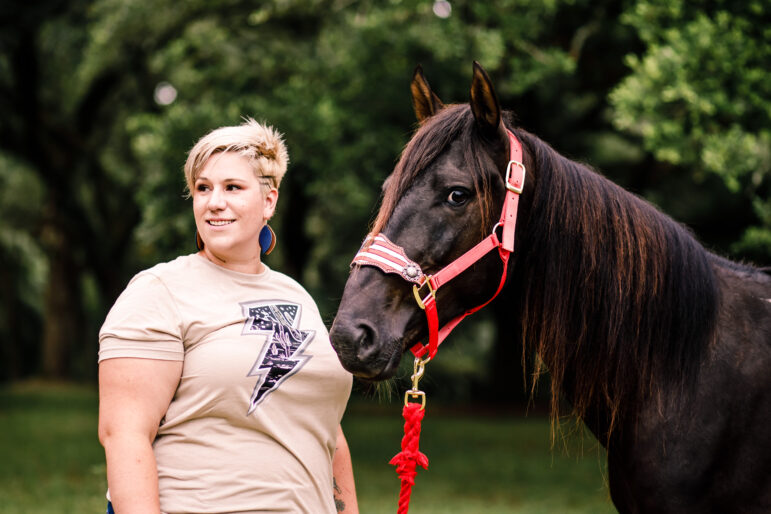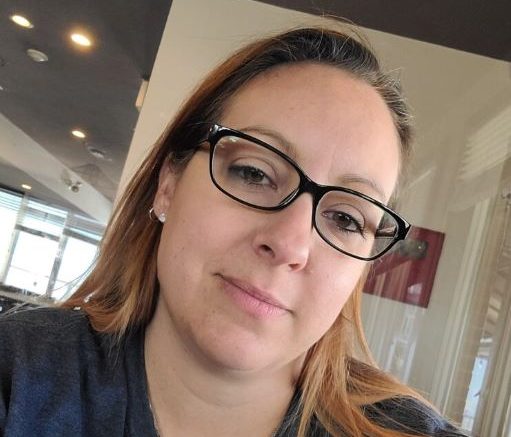By Peggy McCarthy 59 mins ago
Recommend Tweet Emai lPrint More
Debra Geske, a Navy technician, was enjoying cranberry juice at a bar in Guam when a male sailor spiked it with a drug when she wasn’t looking. He and two other sailors drove her home and raped her. “I woke up the next morning full of blood,” she said.
When Geske reported the rape to her petty officer in 2000, he said he couldn’t respond until higher-ups arrived on a Navy ship four weeks later. Then, officials told her it was a “he said she said” scenario, and “they did nothing,” she said. “I felt at the time like I didn’t matter,” said the Glastonbury resident.
Maureen Gard Friedly said she was sexually assaulted by her Marine Corps platoon leader—whom she considered a friend—in 2006. Her commanders told the two to work out their problems and kept them in the same classes and living area. She was told that the notes from an interview about her complaint were lost, and she wasn’t given another interview. “My chain of command really let me down,” she said.
Sexual assaults, rape and sexual harassment in the military continue to occur in large numbers. In 2020, 6,290 people reported being sexually assaulted in the military, according to the Department of Defense (DOD), but victim advocates say that number falls short of actual cases. Advocates cite fear of repercussion and the requirement of reporting to a commander—who may be the assailant—as reasons for the lack of reporting.
The last time the DOD conducted a survey was in 2018, when 20,500 respondents said they were sexually assaulted in the military, up from 14,900 in 2016. The DOD, which conducts surveys every two years, did not do one in 2020.
Now, after a decade of efforts to remove the prosecution of military sexual trauma (MST) from the jurisdiction of commanders, Congress is poised to take action that would put the responsibility for prosecuting sexual assault cases on independent military lawyers.
The move has been hailed as historic. But critics say it doesn’t go far enough because commanders would retain a role in the judicial process, potentially diminishing the effect of the independent prosecutors.
National attention was riveted on the issue when at least 83 women and seven men were sexually assaulted by Navy and Marine aviators attending a 1991 conference called the Tailhook Symposium. Since then, other high-profile cases have occurred. In 2017, Marines solicited and shared nude photos of female colleagues on a Facebook page called Marines United. Last year, Vanessa Guillen, a 20-year-old soldier, was murdered at the Fort Hood Army base in Texas after reporting that she had been sexually harassed.
“I can’t tell you how upset it makes me” that military officials convinced Congress for years to allow commanders to have authority over military sexual trauma cases, Friedly said.
Chelsea M. Donaldson, an attorney with the Connecticut Veterans Legal Center (CVLC), said that she has represented 39 MST survivors—27 men and 12 women—in the past three years. None reported their experiences to their commanders, she said.
“Pretty much every awful story you can think of, I’ve probably heard a version of, unfortunately,” Donaldson said. She cited gang rapes, drug-facilitated rapes, and sexual hazing in boot camp, where soldiers are forced to strip and stand naked in front of each other. “I’m so surprised by how awful human beings can be to one another,” she said.
This year, Defense Secretary Lloyd Austin supported requiring independent military prosecutors in sexual assault cases. The provision is included in the $768.2 billion National Defense Authorization Act (NDAA), which was approved this week by the U.S. House of Representatives. It requires that survivors of sexual assault be informed of the disposition of cases against their perpetrators, requires tracking of retaliation against survivors of MST, and creates an Office of Special Trial Counsel in each service, answerable to a civilian official. It criminalizes sexual harassment but doesn’t take the crime’s jurisdiction away from commanders.

Friedly Photo.
Maureen Gard Friedly advocates for assault survivors and attends an equine-assisted psychotherapy program to help deal with her military sexual trauma. She’s pictured with her horse, Chap.
A statement by Protect Our Defenders (POD), an advocacy group devoted to reducing military sexual trauma, called the use of independent prosecutors “the most significant military justice reform in our nation’s history” and “a momentous step forward.”
However, its praise was qualified because the commanders would retain some judicial authority, including over court-martial proceedings and who would serve on them. Col. Don M. Christensen, POD president, said this “erodes the independence” of the prosecutors and ignores concerns of MST survivors that commanders will “still have too much influence.”
Friedly agreed. A former Meriden resident, she was an activist for MST survivors while attending Quinnipiac University and continues to advocate for them in Texas, where she lives now.
She said commanders’ retaining some judicial authority insults survivors. “Like we won’t see through the wool and think this is some sort of improvement,” Friedly said. “As long as the chain of command has involvement in prosecution and decision-making, we will continue to see a rise in sexual crime, little to no punishment for those found to have been guilty, and a decrease in reporting,” she said.
Friedly, a married mother of two, said if there had been independent prosecutors when she was assaulted at the age of 18, she wouldn’t be living with post-traumatic stress disorder (PTSD), she wouldn’t have lost trust in people, and she wouldn’t be so fearful and suspicious of others.
She attends an equine-assisted psychotherapy program to help deal with her MST and runs occasional support groups for other female MST survivors.
Geske expressed hope that having independent prosecutors would increase MST reporting because it might reduce fear of repercussion. “They told me I shouldn’t be in the military if I was going to complain about somebody sexually harassing me,” said Geske, who was gang-raped when she was 20.
Several advocates said new laws need to be accompanied by cultural changes in the military. “That plays a lot into this whole issue,” Friedly said. She recalled a Marine nickname, “WM,” which she said meant both “woman Marine” and “walking mattress.”

In the last three years, attorney Chelsea M. Donaldson of the Connecticut Veterans Legal Center has represented 39 military sexual trauma survivors—27 men and 12 women.
Donaldson, of the CVLC, called for “a major cultural shift” so MST survivors will feel safe. She said her clients didn’t report sexual abuse because they were “afraid of being punished, of being blamed for the assault, of being labeled as a problem for reporting the assault,” she said.
Donaldson pointed out that it’s important to acknowledge that men also get sexually harassed, raped and assaulted. A July Rand Corporation report for the Pentagon estimated that 1 in 16 women and 1 in 143 men had been sexually assaulted in the military.
U.S. Rep. Jackie Speier, a Democrat from California, first introduced legislation in 2011, and U.S. Sen. Kirsten Gillibrand, a Democrat from New York, introduced legislation in 2013 to take military sexual trauma prosecution out of the chain of command.
“This type of reform was needed decades ago,” Donaldson said.
Support Our Work
The Conn. Health I-Team is dedicated to producing original, responsible, in-depth journalism on key issues of health and safety that affect our readers, and helping them make informed health care choices. As a nonprofit, we rely on donations to help fund our work. Donate Now


